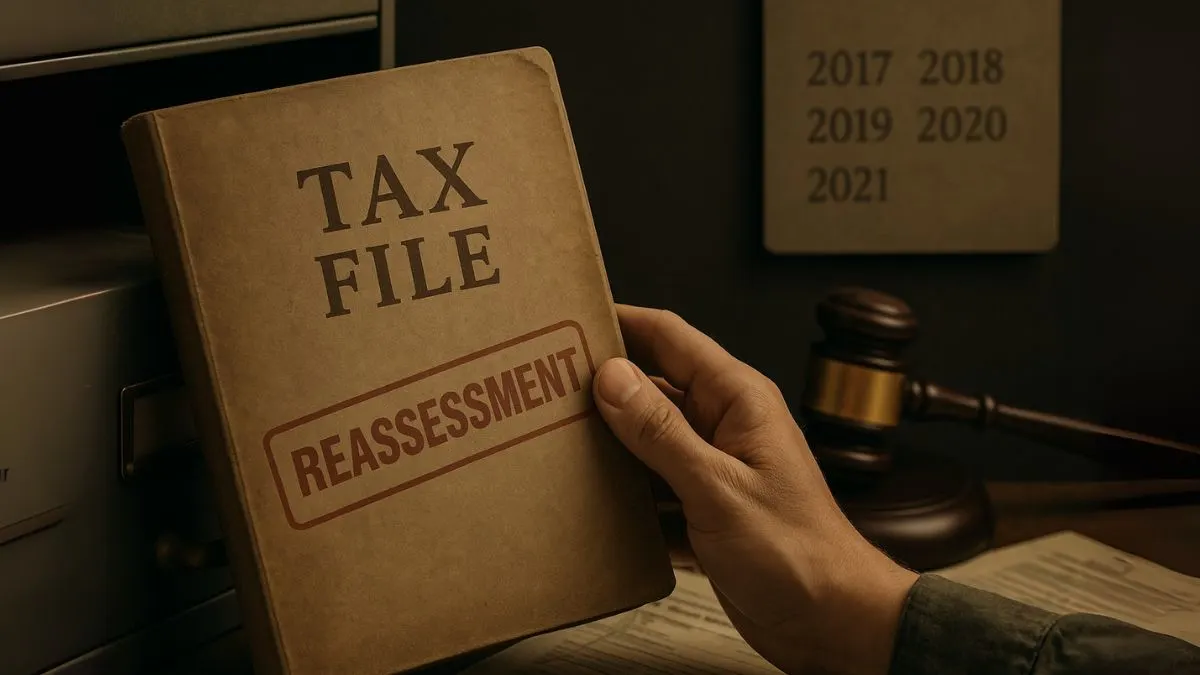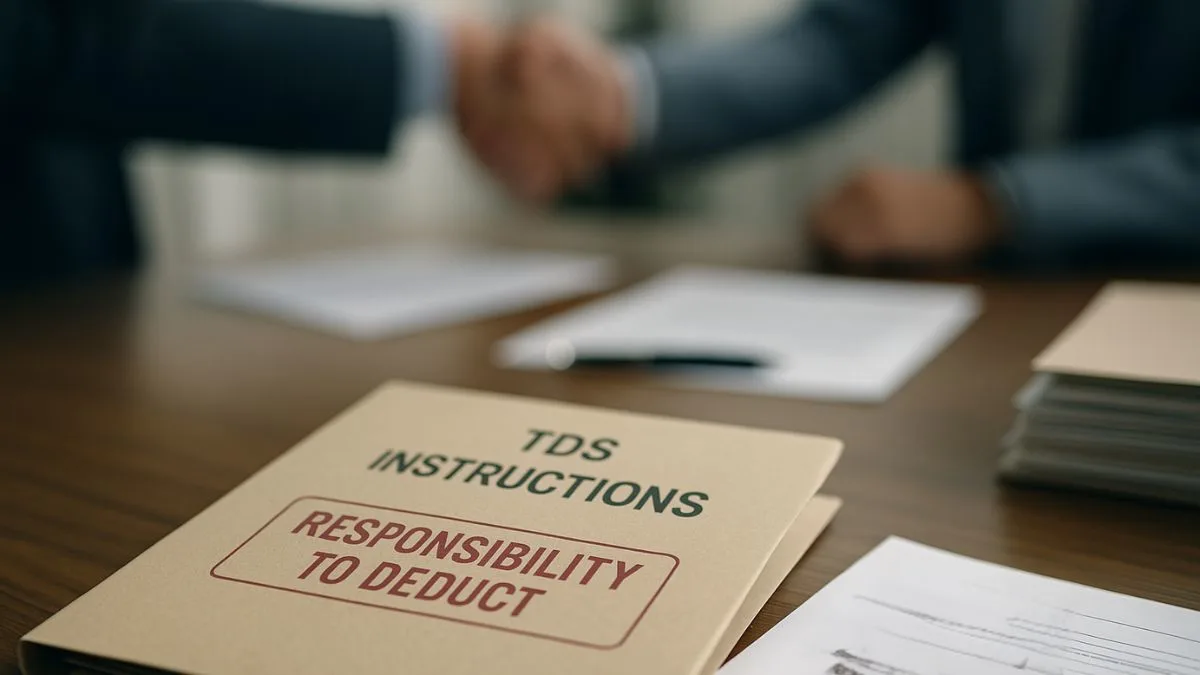
The Indian Income Tax Act has several provisions to ensure that assessments & reassessments are not only accurate but also in line with judicial pronouncements. One such provision is Section 150 of Income Tax Act. This section is critical when an assessment or reassessment is required as a direct consequence of an appellate order, tribunal decision, or court judgment.
In simple terms, Section 150 provides a mechanism to override the usual time limits for assessment when such action is necessary to give effect to a binding legal order. This ensures that tax authorities have the power to reopen assessments even if the statutory time limit has lapsed, provided the action is based on higher authority directions.
What is Section 150 of Income Tax Act?
Section 150 deals with provision for cases where assessment is in pursuance of an order on appeal.
The section allows tax authorities to issue a notice or make an assessment, reassessment, or recomputation at any time (without limitation by time), if such an action is required to:
- Give effect to any finding or direction contained in an order passed by any appellate authority, tribunal, or court.
- Implement the decisions of the Commissioner (Appeals), the Income Tax Appellate Tribunal (ITAT), High Court, or Supreme Court.
In other words, the law acknowledges that judicial findings must be respected, and therefore, even expired assessments can be revived to comply with such orders."
Key Features of Section 150
- Overrides Time Limits – Normally, there are strict time limits for issuing notices under Section 148 for reassessment. But Section 150 extends the time limit for issue of notice for assessment if the action is to comply with appellate or court orders.
- Finding or Direction – The reopening must directly relate to a finding or direction in the appellate/court order. Tax authorities cannot go beyond the scope of such findings.
- Scope of Authority – It covers all higher authorities such as:
- Commissioner (Appeals)
- Income Tax Appellate Tribunal (ITAT)
- High Court
- Supreme Court
- Protection for Assessee – Even though this provision overrides time limits, it cannot be misused. Section 150(2) clearly restricts reopening if, at the time the original order was passed, the reassessment was already barred by limitation.
- Obligation to Furnish Information Return – Section 150 also links with the broader compliance requirement of furnishing returns & information when demanded, making it part of the enforcement mechanism.
Also Read: Reassessment of Escaped Income
Example to Understand Section 150
Let’s consider an example:
- Company A filed its return for Assessment Year (AY) 2016-17. The case was assessed and closed.
- Later, during an appeal for AY 2017-18, the ITAT observed that Company A had wrongly claimed certain expenses since AY 2016-17.
- As a result, the ITAT directed the Assessing Officer to reconsider the expenses for AY 2016-17 as well.
- Even though the time limit for reopening AY 2016-17 had lapsed, under Section 150, the tax authorities can issue a notice & reassess AY 2016-17.
This shows how Section 150 empowers reopening in pursuance of an order on appeal.
Why is Section 150 Important?
The importance of Section 150 lies in its role as a balancing provision:
- For the Revenue: It ensures that higher authority findings are implemented, even if procedural timelines have expired.
- For the Assessee: It provides certainty that reopening is only possible when there is a direct judicial direction, not otherwise.
This prevents revenue leakage while also safeguarding taxpayers from arbitrary reassessment."
Relationship with Other Sections
- Section 147 & 148: Deals with reassessment but is bound by time limits. Section 150 provides an exception.
- Section 153: Prescribes time limits for completion of assessment/reassessment, but Section 150 acts as an override when appellate orders exist.
- Section 245: Relating to refund set-off, can sometimes be connected with reassessment arising from appellate orders.
Judicial Interpretation of Section 150
Courts have repeatedly clarified the boundaries of Section 150:
- Finding or Direction Must Be Specific – A general observation by the appellate authority does not justify reopening.
- No Fishing Expedition – Tax authorities cannot use Section 150 as an excuse to conduct roving enquiries.
- Protection of Limitation at Original Time – If a case was already time-barred on the date of the original order, Section 150 cannot revive it.
Also Read: Time Limit for Completion of Assessments, Reassessments, and Recomputation
Practical Implications
- Taxpayers should be aware that appellate proceedings for one year can impact assessments of earlier years.
- While Section 150 gives wide powers, it is still bound by judicial discipline & cannot be misused.
- Businesses undergoing prolonged litigation should anticipate possible reassessment of earlier years.
Benefits and Concerns
Benefits:
- Ensures justice by giving effect to appellate orders.
- Prevents revenue loss in genuine cases of under-assessment.
- Encourages taxpayers to maintain consistent reporting across years.
Concerns:
- Creates uncertainty for assessees as old assessments can be reopened.
- Sometimes leads to prolonged litigation.
- The interpretation of “finding or direction” can be subjective, causing disputes."
Conclusion
Section 150 of Income Tax Act is a unique provision that allows reopening of cases in pursuance of an order on appeal. It empowers authorities to issue notices even beyond the normal time limits when required to give effect to any finding or direction contained in an order passed by any authority.
While it extends the time limit for issue of notice for assessment, it is not unrestricted. The law ensures protection for taxpayers by limiting its application to only those cases where appellate or judicial authorities have given clear directions. It also ties into the broader compliance mechanism of ensuring that taxpayers meet their obligation to furnish information return.
👉 Facing a notice under Section 150 or need guidance on reassessment proceedings? Get expert help from Callmyca.com and resolve your tax concerns with professional support.











